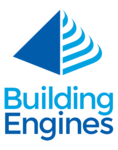Top Real Estate Softwares
Real Estate software serves as a crucial tool for professionals in the property market, streamlining diverse operations within the sector. This software category encompasses applications designed to manage listings, client relations, and financial transactions efficiently. Users can benefit from features that assist in tracking leads, arranging schedules, and analyzing market trends. By integratin... Read More
195 companies found
Product Description
Ballast is a software designed to simplify financial operations for small to medium-sized businesses. Whether you're managing your expenses, tracking revenue, or forecasting future financial needs, Ballast aims to make the process straightforward and efficient. The software combines various financial management tools into one cohesive platform, eliminating the need to juggle multiple applications.... Read More
Users
- • No Data
Industries
- • No Data
Market Segment
- • No Data
Building Engines
Product Description
Building Engines is all about making property management easier and more efficient, especially for those who own or run commercial real estate. Think of it as a digital assistant that takes care of many tasks you’d have to juggle on your own. If you manage office buildings, retail spaces, or any other commercial property, this software helps simplify and streamline your daily operations. Startin... Read More
Users
- • No Data
Industries
- • No Data
Market Segment
- • No Data
Product Description
Visulate is designed to make managing your business simpler. Running a company involves juggling many tasks, and our software aims to streamline those processes into one accessible platform. Visulate combines several essential functions into a single dashboard, so you can save time and focus more on growing your business. What does Visulate do? It offers tools that help with everything from keepi... Read More
Users
- • No Data
Industries
- • No Data
Market Segment
- • No Data
Product Description
SkySlope is designed to make life easier for real estate professionals. Imagine a tool that helps you manage your transactions smoothly from start to finish. With SkySlope, you can handle all your paperwork online, so you don't have to worry about shuffling through stacks of forms. The platform allows you to organize documents, keep track of deadlines, and stay compliant with real estate laws, all... Read More
Users
- • No Data
Industries
- • No Data
Market Segment
- • No Data
FrontSteps
Product Description
FrontSteps is a software solution designed to make managing residential communities as simple and efficient as possible. Whether you oversee a homeowners' association, a property management company, or a gated community, this platform brings everything you need into one easy-to-use interface. The goal is to save time and reduce the stress associated with community management. At its core, FrontSt... Read More
Users
- • No Data
Industries
- • No Data
Market Segment
- • No Data
Product Description
HomePort is a user-friendly software designed to help you seamlessly manage and optimize your short-term rental properties. Whether you are an individual property owner or manage multiple listings, HomePort makes your life easier with its intuitive and straightforward features. Managing bookings is a breeze with HomePort's centralized calendar. You can view all your upcoming reservations in one p... Read More
Users
- • No Data
Industries
- • No Data
Market Segment
- • No Data
Product Description
Managing real estate transactions can be complex and time-consuming, but dotloop aims to simplify the process. Dotloop is a software solution that helps real estate professionals streamline their workflow by providing a platform for collaboration, document management, and transaction coordination. With dotloop, agents, brokers, and clients can work together more efficiently. The platform allows u... Read More
Users
- • No Data
Industries
- • No Data
Market Segment
- • No Data
Product Description
Aro is a user-friendly software designed to make managing and growing your businesses easier. Think of Aro as your all-in-one platform for handling various day-to-day tasks, whether it's organizing projects, tracking sales, or managing customer relationships. One of the best things about Aro is its simplicity to integrate into your existing workflow. You don't need a tech background to get start... Read More
Users
- • No Data
Industries
- • No Data
Market Segment
- • No Data
Product Description
B2BBricks is your go-to software solution designed to streamline all your B2B interactions and transactions. Whether you’re a small business or a large enterprise, B2BBricks simplifies your processes to focus on what matters most: building strong and lasting business relationships. Our software helps you manage customer and partner relationships more effectively by bringing all your critical data... Read More
Users
- • No Data
Industries
- • No Data
Market Segment
- • No Data
Product Description
RealSpace is designed to help businesses efficiently manage and optimize their workspace. By providing a clear overview of office utilization, it allows you to make informed decisions about how to best use your space. Whether it's allocating desks, organizing meeting rooms, or tracking occupancy, RealSpace simplifies the process. With RealSpace, you can easily keep track of which areas are being... Read More
Users
- • No Data
Industries
- • No Data
Market Segment
- • No Data
What are the key features of Real Estate software?
Property Management
Real Estate software is designed to streamline property management tasks. It offers tools for tracking leases, managing tenant and landlord information, and handling maintenance requests. The software ensures efficient operation by automating rental payment tracking and scheduling maintenance services.
Customer Relationship Management (CRM)
A core feature of Real Estate software is its CRM capabilities. It helps in managing and nurturing client relationships by tracking interactions and storing contact information. This feature ensures agents and brokers can efficiently manage prospects and current clients, thereby improving communication and customer satisfaction.
MLS Integration
Multiple Listing Service (MLS) integration is essential in Real Estate software. It provides access to a comprehensive database of listings, enabling agents to find properties quickly. MLS integration ensures listings are up-to-date and helps agents share information with potential buyers effectively.
Document Management
Real Estate software often includes document management features. These tools facilitate the storage and sharing of important documents such as contracts, forms, and agreements. By digitizing paperwork, the software enables easy access to and management of essential documents, ensuring compliance and reducing errors.
Marketing Tools
Marketing is crucial in real estate, and the software includes tools to aid in this process. These tools might include templates for email campaigns, social media integration, and website builders. By leveraging these features, agents can effectively market listings and reach wider audiences.
Financial Tracking
Financial tracking tools are vital in Real Estate software. These tools help manage transactions, track expenses, and generate financial reports. By offering insights into financial performance, the software aids in budgeting and planning.
Online Listings
Real Estate software often supports the creation and management of online listings. This feature allows users to publish listings on various platforms, increasing exposure. It also includes tools for tracking listing performance, helping to refine marketing strategies.
Analytics and Reporting
Analytics and reporting are key features in Real Estate software. The software analyzes data on sales, market trends, and customer behavior to provide valuable insights. These insights assist in strategic decision-making, helping businesses optimize operations and sales performance.
Mobile Access
Mobility is an essential aspect of Real Estate software. With mobile access, users can manage their operations from anywhere, allowing for real-time updates and communication. This feature ensures that agents and brokers stay connected with clients and colleagues on the go.
Scheduling and Calendar Management
Scheduling tools in Real Estate software help manage appointments, viewings, and deadlines. With integrated calendar management, users can coordinate schedules effectively, ensuring no opportunities are missed.
Lead Management
Lead management features simplify capturing and nurturing leads in Real Estate software. These tools automatically categorize and prioritize leads based on interactions and engagement levels. Efficient lead management helps maximize conversion rates by focusing attention on the most promising prospects.
Automation
Automation in Real Estate software streamlines repetitive tasks. By automating processes such as follow-ups, reminders, and payment collections, the software enhances efficiency, allowing agents to focus on high-value activities.
Real Estate software combines these features to provide a comprehensive solution for managing real estate activities. By leveraging these features, real estate professionals can enhance efficiency, improve client relations, and drive business growth.
How does Real Estate software help in managing property listings?
Streamlined Data Input
Real Estate software simplifies property data entry. Users can input multiple details such as address, price, square footage, and photos all in one place. This unified system minimizes errors and ensures information is consistent. By centralizing data, the software makes it easier to update property information, providing a hassle-free experience in managing listings.
Centralized Database
The software offers a centralized database, making it easy to manage multiple listings. Brokers can access and modify property details swiftly. This database provides a complete view of all current listings, which helps in evaluating and managing each property effectively. The centralized system also enables easy access to property information, facilitating quick decision-making.
Automated Updates
Real Estate software often includes automatic updates for property information. When market conditions change, users can adjust listings without manual intervention. This feature saves time and keeps listings current. By automating updates, the software ensures that all property data remains precise, maintaining the integrity of listings.
Integration with MLS
Many Real Estate software solutions seamlessly integrate with Multiple Listing Services (MLS). This integration enhances the visibility of property listings, expanding reach to potential buyers. Agents can upload new listings directly to the MLS, ensuring that the properties gain wide exposure. This not only amplifies marketing efforts but also streamlines the listing process.
Customizable Templates
Customizable templates are a feature of Real Estate software, allowing users to create eye-catching property listings. Agents can tailor the appearance of each listing to reflect the unique characteristics of each property. These templates ensure that each listing is professionally presented, which can attract more potential buyers and improve engagement.
Advanced Search Capabilities
The software provides advanced search capabilities, enabling potential buyers to find listings based on specific criteria. Filters for price range, square footage, and location help refine searches, allowing users to quickly locate properties that meet their needs. These capabilities boost the efficiency of managing and navigating property listings.
Reporting and Analytics
Real Estate software often includes reporting and analytics tools. These tools help users monitor the performance of listings, track views, and understand buyer interests. Analytics provide insights into which listings generate the most attention, helping agents refine their strategies. This data-driven approach enhances the management of property listings.
Mobile Accessibility
Many Real Estate software options offer mobile access, ensuring that property listings are reachable anytime and from anywhere. This flexibility supports agents in managing listings while on the go. With mobile accessibility, updating property details, responding to inquiries, and tracking listing status becomes convenient, optimizing time management.
Lead Management
Real Estate software typically incorporates lead management features, connecting potential buyers with specific listings. It helps track interactions, emails, and calls related to each property, ensuring no leads are missed. By efficiently managing leads, the software enhances the chances of converting interest into successful sales.
Visual Presentation
High-quality visual presentation is vital in real estate. Real Estate software often supports high-resolution images and virtual tours. These features present properties in the best light, attracting potential buyers and keeping listings competitive. Enhanced visuals are crucial for showcasing the unique qualities of each property.
Real Estate software excels in managing property listings by offering a range of tools and features that streamline processes, enhance visibility, and improve user experience. From data input to lead management, the software provides comprehensive solutions for effective listing management.
Can Real Estate Software Assist in Handling Client Communications?
Overview
Real Estate software is a powerful tool for managing various aspects of real estate operations. One of the key features is its ability to assist in handling client communications. These platforms typically offer a range of features tailored to meet the communication needs of real estate professionals.
Streamlining Communication
Real Estate software often includes capabilities such as automated emailing, instant messaging, and chat features, crucial for maintaining constant communication with clients. By using a centralized dashboard, real estate agents can track and manage all interactions. This optimizes the efficiency of communications, ensuring no message is missed or forgotten.
Contact Management
At the core of effective client communication is contact management. Real Estate software generally has robust contact management systems that allow users to keep detailed records of clients, including their contact information, preferences, and interaction history. This organized database aids agents in understanding client needs and personalizing communication, thereby fostering stronger client relationships.
Automated Follow-Ups
Another advantage of Real Estate software is its ability to automate follow-up communications. Agents can schedule automatic emails or reminders for follow-ups, ensuring timely interactions without manual intervention. This automation aids in keeping clients engaged and informed throughout the buying or selling process. Such automatic processes boost productivity and reduce the chances of missing crucial follow-ups.
Personalized Communication
For effective client engagement, personalization is key. Real Estate software often includes tools for crafting tailored messages based on client data. With access to comprehensive client profiles, agents are better equipped to send personalized emails and updates. This level of customization improves client satisfaction and increases the likelihood of completing transactions.
Drip Campaigns
Real Estate software also supports drip campaigns. This involves sending a series of pre-written messages to clients over time, nurturing leads who exhibit interest in specific properties or services. Such campaigns make it easier to maintain ongoing communication with potential clients, helping to convert leads into sales. Drip campaigns can be adjusted based on the client's response, further personalizing the interaction.
Integrated Communication Channels
Some Real Estate software solutions integrate multiple communication channels—such as email, SMS, and social media—into a single platform. This unified system allows agents to switch seamlessly between channels, maintaining a consistent communication flow. Integrated communication tools ensure that clients receive information through their preferred medium, enhancing overall experience.
Reporting and Analytics
Real Estate software often equipped with reporting and analytics features provides insights into communication trends and effectiveness. By analyzing these metrics, agents can refine their strategies, identifying what works and what needs improvement. Metrics such as response rates and engagement levels help in measuring the success of communication efforts.
Conclusion
In summary, Real Estate software enhances client communications by optimizing communication processes, organizing contact information, and integrating multiple channels. Through these features, real estate professionals can maintain effective and personal communication with clients, significantly improving their service delivery.
What role does Real Estate software play in lease management?
Streamlining Lease Administration
Real Estate software plays a crucial role in lease management by streamlining lease administration. It automates repetitive tasks such as tracking lease terms, monitoring lease renewals, and managing rental payments. This automation reduces errors and ensures that important deadlines and obligations are met without human intervention. Lease administration becomes more efficient with Real Estate software, enabling businesses to allocate resources more effectively and minimize risk.
Centralized Data Management
Real Estate software provides a centralized platform for managing lease data. It stores lease documents, tenant information, and payment records in an organized manner. This centralization facilitates easy access to critical information, allowing property managers to make informed decisions quickly. The software often includes search functions and filters, enabling users to locate specific data efficiently. Real Estate software enhances the ability to manage and analyze large volumes of lease-related information accurately.
Enhanced Tenant Communication
Effective communication with tenants is vital for successful lease management. Real Estate software assists in maintaining open lines of communication through various channels. It often includes messaging features, scheduled notifications, and alerts that help managers keep tenants informed about lease-related issues, such as upcoming payments or property maintenance. This enhances tenant satisfaction and increases the likelihood of lease renewals.
Financial Management and Reporting
Financial management is a critical aspect of lease management, and Real Estate software significantly aids in this area. It provides tools for tracking rental payments, late fees, and financial forecasting. By generating detailed financial reports, the software allows managers to gain insights into revenue, expenses, and profitability. Accurate financial reporting ensures compliance with accounting standards and helps in strategic planning for future investments.
Legal and Compliance Support
Navigating the legal landscape of lease management requires meticulous attention to detail. Real Estate software aids in maintaining compliance with local regulations and lease agreements. It frequently includes features that help track key dates, like lease expirations and renewal options, ensuring all legal commitments are upheld. Additionally, some solutions offer templates and tools for using standardized lease agreements, minimizing legal risks and disputes.
Maintenance and Repair Tracking
Real Estate software often incorporates maintenance and repair tracking functionalities. This aspect of lease management ensures that property managers can efficiently handle maintenance requests, track ongoing repairs, and schedule preventive maintenance. By maintaining detailed records, the software helps in preserving property value and maintaining tenant satisfaction, which lessens tenant turnover.
Improved Decision-Making
With robust data analytics and reporting capabilities, Real Estate software significantly enhances decision-making processes within lease management. It provides insights based on historical and current data, enabling managers to forecast trends and plan strategically. This informed decision-making process leads to improved investment returns and optimized property portfolios.
By addressing these critical functions, Real Estate software serves as an essential tool in leasing management. It empowers managers to operate more efficiently, maintain tenant satisfaction, ensure legal compliance, and make data-driven decisions, all of which contribute to the overall success of property management operations.
How does Real Estate software integrate with other tools and platforms?
Real Estate software plays a crucial role in managing various tasks within the real estate industry. One of its core functionalities is integration with other tools and platforms, which enhances efficiency and streamlines processes. Here’s how Real Estate software typically integrates with other solutions:
Customer Relationship Management (CRM) Systems
Real Estate software often integrates with CRM systems to manage client interactions effectively. By connecting with CRMs, real estate agents can maintain comprehensive records of customer communications. This integration ensures that customer data is centralized and easily accessible, helping teams manage leads and follow-ups more efficiently.
Multiple Listing Services (MLS)
Integration with MLS systems allows Real Estate software to access and update property listings seamlessly. This connection ensures that the data distributed across various platforms remains consistent and accurate. Agents can retrieve detailed information, including property specifications and market data, without leaving the software interface.
Financial and Accounting Tools
Real Estate software often connects with financial software to handle transactions, commissions, and closing costs. This integration helps automate billing, track expenses, and generate financial reports. By linking with accounting platforms, it simplifies the financial management aspect of real estate transactions, reducing human error.
Marketing Automation Platforms
Integrating Real Estate software with marketing automation tools enables agents to execute and monitor marketing campaigns more effectively. By connecting these systems, users can automate email campaigns, manage social media postings, and analyze marketing performance. This linkage ensures that realtors reach their target audience efficiently.
Document Management Systems
Real Estate transactions involve numerous documents, and integration with document management systems is vital. This integration allows easy storage, retrieval, and sharing of essential documents such as contracts and disclosures. Real Estate software can sync with these systems to ensure that all documentation is organized and accessible.
Property Management Platforms
For those involved in property management, integrating Real Estate software with property management platforms can be highly beneficial. This connection provides capabilities for tracking rental payments, managing tenant requests, and maintaining property service records. Such integration can streamline operations for property managers and enhance tenant satisfaction.
Communication Tools
Real Estate software can also integrate with various communication tools to facilitate better interpersonal communication within teams or between agents and clients. Popular integrations include email clients, messaging apps, and video conferencing platforms. These integrations allow for seamless communication without switching between applications, improving collaboration and response times.
Data Analytics and Reporting Tools
Data-driven decision-making is essential in real estate, and integrating Real Estate software with analytics tools can provide valuable insights. These integrations allow for detailed analysis of market trends, customer behavior, and business performance. By connecting with reporting tools, agents and brokers can visualize data in dashboards, aiding strategic planning.
In conclusion, the integration capabilities of Real Estate software are fundamental to optimizing workflows and enhancing productivity in the real estate industry. By seamlessly connecting with various external tools and platforms, users can improve data accuracy, streamline operations, and ultimately deliver better service to clients.
What should I look for when choosing Real Estate software for my business?
When selecting Real Estate software for your business, consider key aspects that align with your goals, processes, and technological needs. Understanding the essential elements will guide you in choosing the right software solution. Below are the factors to consider:
Compatibility with Business Needs
Evaluate if the Real Estate software matches your daily operations and business model. Look for software that enhances productivity and streamlines workflows. This includes managing listings, handling customer relationships, or tracking market trends. Ensure the software aligns with your objectives and complements your existing systems.
Ease of Use
Opt for Real Estate software with an intuitive interface and easy navigation. User-friendly software reduces the learning curve and encourages adoption among team members. Simplicity in design and functionality can enhance efficiency, resulting in more streamlined operations.
Features and Functionality
Identify essential features your business needs, such as property management, lead generation, customer relationship management (CRM), and reporting analytics. Choose Real Estate software that offers a comprehensive suite of tools to manage various aspects of real estate operations.
Integration Capabilities
Confirm that the Real Estate software can seamlessly integrate with existing tools and platforms. Whether it’s accounting software, email platforms, or marketing tools, integration ensures a smooth flow of information and improves efficiency.
Scalability
Your business may expand, requiring software that accommodates growth. Select Real Estate software with scalable features that can adapt to increased transactions, listings, and users. Scalability ensures long-term usability and value.
Security and Compliance
Data protection is crucial in real estate transactions. Ensure the Real Estate software has robust security measures, including encryption and access controls. Compliance with industry standards and regulations is also vital to safeguard sensitive client information.
Support and Training
Reliable customer support and training options are vital when adopting new software. Confirm that the Real Estate software provider offers resources and support to troubleshoot issues and onboard team members efficiently.
Mobility and Accessibility
In today’s fast-paced market, access to information on-the-go is essential. Choose Real Estate software that offers mobile compatibility for easy access via smartphones or tablets. This enhances flexibility and responsiveness in various situations.
Cost and ROI
Assess the cost-effectiveness of the software in relation to your budget and potential return on investment (ROI). Consider initial setup costs, subscription fees, and any additional costs for upgrades or support. Ensure the software provides value that justifies the expense.
Customization
Every real estate business has unique needs, so software that allows for customization is advantageous. This ensures that the solution can be tailored to fit specific processes or requirements, enhancing its effectiveness.
By evaluating these factors, you can make an informed decision when choosing Real Estate software. Consideration of compatibility, ease of use, necessary features, integration, scalability, security, support, mobile access, cost, and customization will guide you to a solution that fits your business needs.
How can Real Estate software improve marketing and lead generation for properties?
Streamlined Campaign Management
Real Estate software enhances marketing efficiency by streamlining campaign management. It offers tools to design, implement, and monitor campaigns across various channels. This integration ensures that real estate professionals reach a wider audience with consistent messaging. By using Real Estate software, agents can schedule postings, track performance, and adjust strategies in real-time to maximize engagement.
Targeted Advertising
One of the standout features of Real Estate software is its ability to facilitate targeted advertising. By analyzing data such as demographics, search behavior, and user preferences, agents can create highly personalized ads. This ensures that the right people see the right properties, increasing the chances of converting potential leads into clients. Targeted ads lead to better customer engagement and drive higher-quality leads.
Enhanced Lead Management
Real Estate software often includes robust CRM functionalities that aid in efficient lead management. Automation tools within these systems can sort, prioritize, and assign leads to the appropriate sales agents. This ensures a faster response time, which is critical in converting leads. A well-managed lead pipeline, facilitated by Real Estate software, keeps prospects engaged and informed, improving the potential for successful transactions.
Data-Driven Insights
Data analysis is a crucial feature of Real Estate software that improves marketing and lead generation. By leveraging analytics, agents gain insights into market trends, consumer behavior, and campaign performance. These insights allow for informed decision-making and strategy adjustments, leading to more effective marketing efforts. The ability to respond to real-time data ensures that marketing strategies stay relevant and impactful.
Automation of Routine Tasks
Real Estate software significantly reduces the time spent on routine tasks through automation. Tasks such as sending follow-up emails, scheduling social media posts, and updating listings are automated, allowing agents to focus on strategic activities. Automation not only enhances productivity but also ensures that potential leads receive timely and consistent communication, which is essential for successful lead nurturing.
Seamless Integration with Digital Platforms
The integration capabilities of Real Estate software simplify marketing efforts by connecting seamlessly with various digital platforms. Whether it's listing properties on popular real estate portals or syncing with social media channels, this integration ensures that agents can reach their audience effectively. By maintaining consistency across platforms, Real Estate software bolsters brand presence and improves the reach of marketing campaigns.
Virtual Tours and Digital Presentations
Incorporating modern digital tools like virtual tours or 3D presentations into marketing strategies is another way Real Estate software enhances property marketing. These tools give potential buyers a more immersive experience, allowing them to explore properties in detail without physical visits. Virtual presentations broaden the audience base by attracting tech-savvy prospects who prefer engaging with properties digitally before making decisions.
Conclusion
Utilizing these tools and strategies, Real Estate software efficiently enhances marketing efforts and boosts lead generation for real estate professionals. By streamlining processes, providing valuable insights, and enabling targeted approaches, Real Estate software plays a pivotal role in fostering successful real estate marketing and lead generation.









